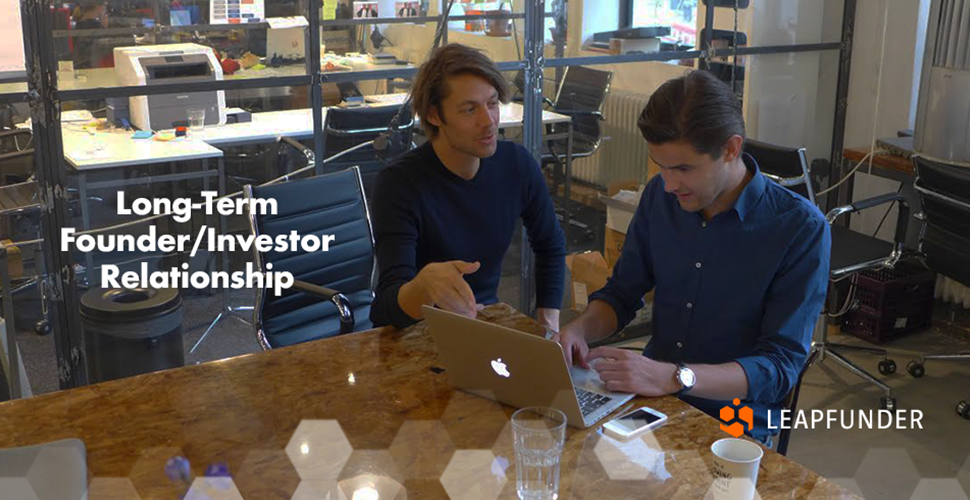In our new ‘Raising Funding for Your Startup’ blog series, we’re taking you through six steps of raising funding. The sixth and last blog is dedicated to the long-term founder/investor relationship. Learn about cash flows, updates, and why early-stage startups should talk to VCs.

Long-Term Founder/Investor Relationship
After the celebration
You have closed your round! After the celebration, you should realise that closing a deal is not a one-time event. You have concluded the round, but now a long-term relationship starts. Involving your investors and giving updates is essential. Try to find a rhythm in providing new information to your investors. Create a repeated format and force yourself to use it with regularity: every month, for example. Always remember that there are multiple rounds. Investors can see the next funding round coming because you tell them about your progress in your updates. Of course, it can’t be all good news: investors have the right to the truth about how things are going since their cash is at risk. Good news, as well as bad news, should be communicated steadily. Imagine if an investor doesn’t get an update from you for a year: even if you now give a full update, and things are going well…. the trust is still reduced. If you come asking for another funding round, then that conversation is much easier if you built a steady relationship of trust over time. Generally: if you involve your investors actively in your company, then they can feel comfortable recommending an investment to their friends as well.
Content of updates
One of the main things you should focus on is your cash flow. Always be aware of your revenue and costs. Startups often run out of money quicker than they expect. Sometimes there is a setback, and the need for a next funding round occurs sooner than expected. Of course, information about your cash position can be highly commercially sensitive. You don’t want that information in the hands of strangers, and so you have to be careful spreading around too much detailed information as well. But you do need to make investors part of your decisions as you go; otherwise, a call for capital might come as too much of a surprise. Of course, in your updates, you should always emphasise information about the development of your business. In particular, you should find a convenient and consistent way of reporting your growth to them. In addition to these regular updates you should usually also update them on the following topics: 1) management appointments, so the addition or exit of key team members 2) large expenditures, where what is defined as large depends on the size of your startup, and 3) material changes to the capital structure: for example when an investment round is completed, or a large loan is attracted.
Why early-stage startups should talk to VCs
You probably won’t have VC investors until you have grown substantially. However, it is a smart idea to be prepared for them from the beginning. If you already know what metrics they are focusing on, you can work towards them. For example, some VCs demand an X monthly recurring revenue, or a growth rate of X month on month over the last X mothss. If you build a strong relationship with the VC’s analyst early on, they may start to accept regular updates from you. That means that when you finally get to the point that you are eligible for an investment, they have already built familiarity with you. It means you can move towards attracting funding much faster. Of course, then the VC funding game starts, which is somewhat different from that of the angel funding game. But don’t forget your Angels! They got you to where you are, and deserve fair treatment.
We hope you liked our ‘Raising Funding for Your Startup’ blog series. Stay tuned for more knowledge.
Join our network of startups & investors!



